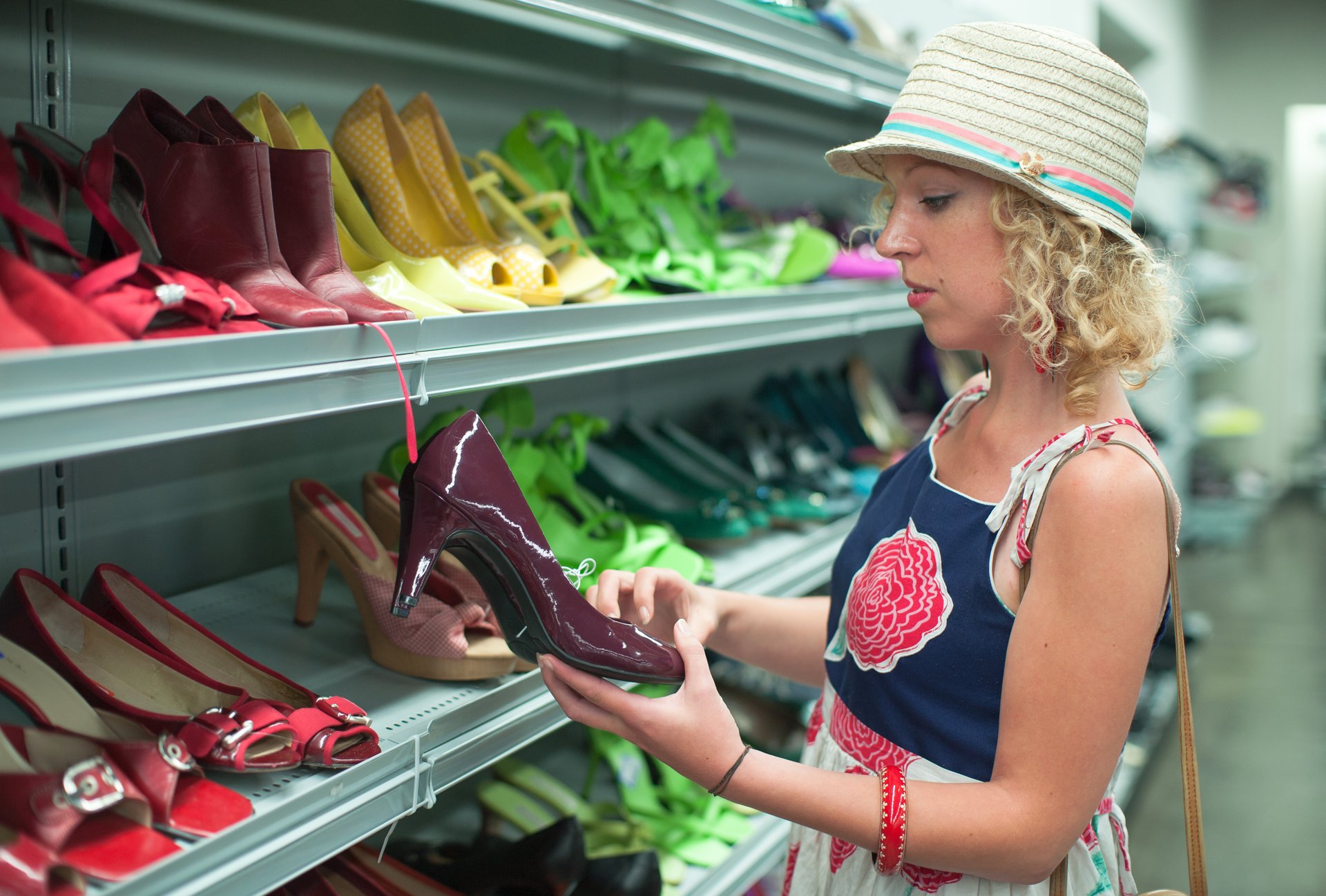
One of the best ways to make the most of your money is to head to the thrift store and see what’s available. I once bought a bed frame and cute lampstand for less than $13 total.
But just because something is cheap, that doesn’t mean it’s a good idea to buy it. There are some things you should avoid at thrift stores.
I asked a few consumer advocates and frugal experts to weigh in on when it’s worth it to pay a little more. They consider the following items among those you should avoid buying from secondhand stores.
1. Vintage painted items
“I shop at thrift stores for probably 50% of my stuff, so I’ve learned many tricks of the trade,” says Dustyn Ferguson, a blogger at frugal website Dime Will Tell.
He points out that old painted items — such as vintage dishware — can contain lead and contaminate whatever you’re eating.
“If you do buy, always test for lead,” Ferguson recommends.
2. Mattresses
This is the ultimate thrift store no-no. Just about every expert says buying a mattress at a thrift store is a terrible idea.
Indeed, we cite mattresses in both “10 Things No One Should Ever Buy Used” and “It’s Worth Spending More on These 14 Purchases.”
“Mattresses can be contaminated with dirt, skin cells and who knows what else,” says Ferguson. “Think of it like a sponge: Over time, it’s so contaminated you need a new one.”
And, of course, you don’t want to risk bringing bedbugs, lice or other hard-to-get-rid-of pests into your home.
3. Shoes
This is another purchase that earned a spot in “10 Things No One Should Ever Buy Used.” The article explains:
“If you’re interested in having comfy feet and minimizing back pain, you might want to skip past the used shoe section at the thrift store. Shoes often come to conform to their first owner’s feet, which can make them uncomfortable for you.”
4. Electronics
J.R. Duren, senior editor at consumer review website HighYa, says it’s best to avoid thrift-store electronics when possible.
Cords could be frayed or internal wiring might be degraded, leading to safety problems when you plug it in.
“Just because a monitor powers on doesn’t mean it’s devoid of issues,” Duren says. “There could be glitches that you don’t see with a 30-second test, but that would annoy you if you took the monitor home and used it for work every day.”
5. Small appliances
You can’t be sure that small kitchen appliances will actually work as expected when you buy them at a thrift store, says Steven Millstein, an editor at CreditRepairExpert.
He points out that items like blenders and kitchen appliances, which you can’t adequately field test, are likely to be outside their warranty. And you could spend the money with no recourse if things don’t work out.
6. Vacuums
“Vacuum cleaners are not built to last long,” says Millstein, citing a Consumer Reports article putting the median lifespan at about eight years.
As with kitchen appliances, you don’t know the status of the warranty.
However, some vintage models that actually were built to last — such as Kirby G series vacuums — might be an exception if you know what to look for.
7. Bedding
You can’t always completely sanitize bedding, notes Jennifer Hayes, founder of the website Smarty Pants Finance.
If you’re concerned about what used bedding could be harboring, she suggests looking for new sets of bedding. You can find them at big-box stores like Walmart and online retailers like Amazon for as little as $20.
8. Beauty products
Even sealed cosmetics could be expired or otherwise past their prime.
As we detail in “8 Household Items That Go Bad — or Become Dangerous:”
“In some cases, they may simply not work as well, but some cosmetics may collect bacteria over time and may pose a health risk.”
9. Toys
Worries about toys stretch beyond the inconvenience of missing puzzle pieces or an incomplete set of parts.
“Afflictions suffered by pre-loved toys can render them dangerous to kids as well as useless,” says Jennifer McDermott, formerly a consumer advocate with personal finance comparison website Finder.com.
Stuffed animals could have contaminants in their fur. Broken cords on plug-in toys could present safety hazards.
“Play it safe and stick to store-bought toys or those passed along from trusted friends and family,” McDermott suggests.
10. Car seats
We advise against buying secondhand child car seats and booster seats in “7 Things That Prove Cheaper Isn’t Always Better.” The article explains:
“If it’s been in a crash, its integrity could be compromised. In addition, an old car seat could be expired. After years of sitting in the sun or freezing in the winter, the plastic may be degraded or the seat may be so old that it no longer meets current safety standards.”
Multiple federal safety websites, such as the website of the National Child Passenger Safety Board, offer tips and links to resources to help you choose the best car seat.
11. Cribs
This is another baby buy that you should not make at secondhand shops due to safety concerns.
The federal government implemented new crib safety standards in 2011. So, thrift-store cribs could have been built to dated standards.
Even if you’re certain that a thrift-store crib was made post-2011, the warranty could have lapsed or the crib could have been recalled.






Add a Comment
Our Policy: We welcome relevant and respectful comments in order to foster healthy and informative discussions. All other comments may be removed. Comments with links are automatically held for moderation.